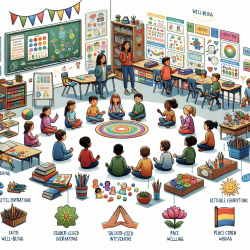As a practitioner dedicated to providing the best possible support for children with special needs, it's crucial to stay informed about the latest research and methodologies. One such resource is the book "Educating Children with Velo-Cardio-Facial Syndrome" by Donna Cutler-Landsman (2007). This comprehensive guide offers valuable insights into the educational needs of children with Velo-Cardio-Facial Syndrome (VCFS), a genetic condition involving a microdeletion on chromosome 22.
VCFS often presents a range of developmental and learning difficulties, making it essential for educators and therapists to understand the specific challenges and strengths of these children. Here are some key takeaways from Cutler-Landsman's research that can help improve your practice:
Understanding VCFS
VCFS, also known as 22q11.2 deletion syndrome, affects multiple systems in the body, leading to a variety of symptoms. Children with VCFS may have issues with:
- Medical: Cardiac anomalies, palate defects, and other health issues.
- Neurocognitive: Difficulties with attention, memory, and executive function.
- Psychiatric: Increased risk of psychiatric disorders such as anxiety and depression.
- Communication: Speech and language delays or disorders.
Educational Interventions
Cutler-Landsman's book is divided into two parts. Part I provides an overview of the medical, neurocognitive, psychiatric, and communication issues that children with VCFS often face. Part II focuses on educational interventions from early childhood through adolescence. Here are some actionable strategies:
Classroom Accommodations
- Academic Delays: Provide additional time for assignments and tests.
- Organization: Use visual schedules and checklists to help with task management.
- Behavior: Implement positive reinforcement strategies to encourage desired behaviors.
Specialized Teaching Strategies
- Mathematics: Combine direct instruction with strategy instruction to help students understand concepts.
- Reading: Use multi-sensory approaches to improve decoding and comprehension skills.
- Social Skills: Facilitate social interactions through structured group activities and role-playing exercises.
Further Research and Continuous Improvement
While the book provides a solid foundation, it also emphasizes the importance of ongoing research and individualized approaches. Each child with VCFS is unique, and their educational needs can vary widely. Therefore, it's essential to:
- Regularly assess each child's strengths and weaknesses.
- Adapt interventions based on what works best for the individual.
- Stay updated with the latest research and best practices.
In conclusion, "Educating Children with Velo-Cardio-Facial Syndrome" by Donna Cutler-Landsman is an invaluable resource for practitioners looking to enhance their skills and provide effective support to children with VCFS. By implementing the strategies outlined in the book and staying committed to continuous learning, you can make a significant impact on the educational outcomes of these children.
To read the original research paper, please follow this link: Educating Children with Velo-Cardio-Facial Syndrome - Cutler-Landsman (2007).










